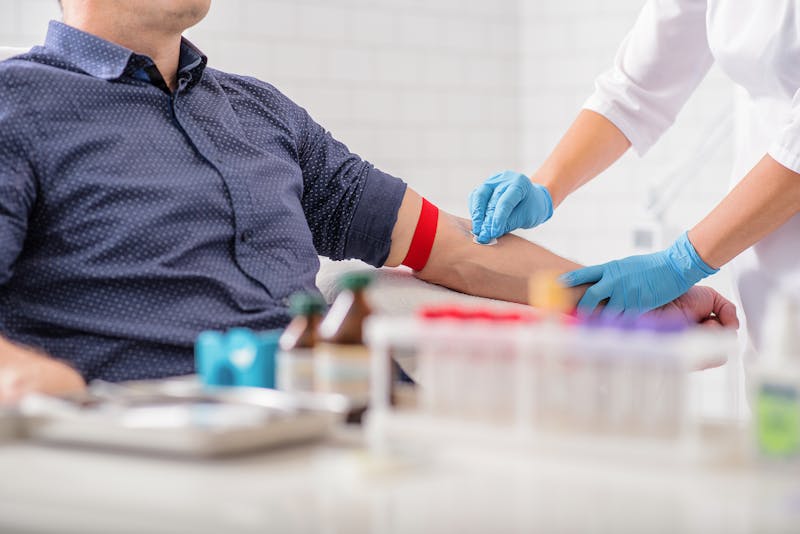
In dermatology, few diagnoses are as concerning as melanoma. This aggressive form of skin cancer can be deadly if not detected and treated early. You might wonder: can melanoma be detected through blood work? Understanding the role of blood tests in diagnosing and monitoring melanoma is crucial for anyone looking to protect their health. At Certified Dermatology, we’re here to help you navigate your journey every step of the way. So, to that end, let’s delve into the relationship between melanoma and blood work, providing you with essential insights into this critical aspect of skin cancer detection and management.
The Role of Blood Work in Melanoma Diagnosis
Melanoma is mainly identified through a skin biopsy, where a sample of the questionable mole or lesion is analyzed under a microscope to check for cancer. Although blood tests aren't usually the primary method for diagnosing melanoma, they can still be helpful in certain cases.
Blood tests for melanoma may be utilized to assess the levels of specific biomarkers associated with the disease, such as lactate dehydrogenase (LDH). Elevated LDH levels in the blood can sometimes indicate the presence of advanced melanoma or metastatic disease. However, it's important to note that LDH levels can also be elevated due to other factors unrelated to melanoma, so blood work results should be interpreted in conjunction with other diagnostic methods.
Monitoring Melanoma Progression
Blood work can aid in initial diagnosis, monitor the progression of melanoma, and assess the response to treatment. Regular blood tests may be conducted to track changes in LDH levels and other biomarkers, providing valuable insights into the disease's status and guiding treatment decisions.
The Limitations of Blood Work
While blood tests can offer valuable information in the context of melanoma, it's crucial to recognize their limitations. Blood work alone cannot definitively diagnose or stage melanoma, and it should be complemented by thorough clinical evaluation, imaging studies, and tissue biopsies when necessary. As such, blood tests should be viewed as a component of a comprehensive approach to melanoma diagnosis and management rather than a standalone diagnostic tool.
Seeking Expert Guidance
If you have concerns about melanoma or are seeking guidance on diagnostic testing, it's essential to consult with our team of board-certified dermatologists at Certified Dermatology. Our experienced team of dermatologists has the expertise to assess your individual risk factors, provide thorough skin examinations, and recommend appropriate diagnostic measures, including blood work, when indicated.
We’ve Got You Covered
While blood work can offer valuable insights into melanoma and its progression, it cannot diagnose the disease on its own. If you have concerns about melanoma or need comprehensive skin care, reach out to our Certified Dermatology team. Schedule a consultation today to receive personalized guidance and expert care from our dedicated professionals. Taking a proactive approach to your skin health can make a significant difference in protecting your well-being. Our team of dermatologists is here to support you every step of the way.
